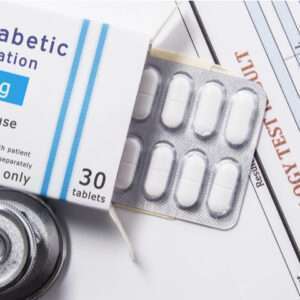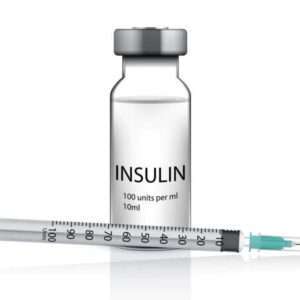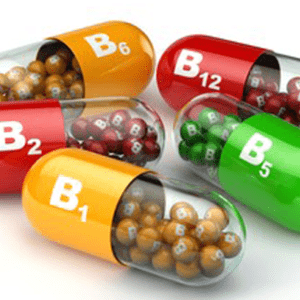Description
Oral hypoglycemics, what are how they, and how do they work?
Oral hypoglycemics are drugs that help to increase the body’s sensitivity to insulin, thereby lowering blood glucose levels. These medications come in many shapes and sizes with different lengths of effectiveness depending on the type of drug administered. Oral hypoglycemic agents work by inhibiting hepatic glucose release into the bloodstream, increasing pancreatic insulin secretion, or both. There are several oral hypoglycemic agents available, including sulfonylureas (e.g., glyburide), meglitinides (e.g., repaglinide), biguanides (metformin), and alpha-glucosidase inhibitors (acarbose).
The most common oral hypoglycemic is metformin (Glucophage), which has been shown to decrease HbA1c levels. Therefore, it is recommended that patients with type-2 diabetes take metformin for at least five years before considering other oral hypoglycemics such as rosiglitazone or pioglitazone. The typical starting dose for these drugs is one tablet taken twice a day before breakfast and dinner. However, because these medications affect insulin secretion, patients should not take them late at night as the drug may cause an increase in blood sugar during sleep.
Pharmapk is committed to producing the highest quality chemicals. We know how critical our standards are maintained; therefore, each batch leaves Pharmapk’s facility with a rigorous inspection from top-to-bottom before being shipped out for sale or resale elsewhere–and availability can be found no matter where you live in this world! Maintaining low cost on oral hypoglycemics has been one area we’ve focused heavily upon over time as well: while many other companies may charge more than double what we do here at Pharmapk.
Oral hypoglycemics: who should take them and when
Oral hypoglycemics can be a life-saving drug for those diagnosed with diabetes. However, many people do not know who should take them and when they need to take them.
The first important thing to understand is that oral hypoglycemic drugs are not recommended for everyone with type 2 diabetes mellitus (T2DM). The American Diabetes Association recommends oral hypoglycemics as part of the treatment for those with type 1 diabetes. If your doctor has prescribed an insulin treatment plan or you have T1DM, then it is likely that you will only need to use these medications in cases where your blood sugars become dangerously high or after gastric bypass surgery.
The best time to take these medications is right before meals because they will have their maximum effect on your blood sugar level at that time.
Oral hypoglycemics: Side effects, Drug interaction, Precautions, and much more!
There are several factors to consider before beginning this type of drug:
Potential side effects: Patients taking oral hypoglycemics may experience weight gain, liver damage, dizziness, nausea, vomiting, diarrhea, headache, or loss of appetite. A patient’s blood sugar levels may also drop to dangerously low if they miss a meal or their dosage is too high.
Potential drug interactions: Several medications may interact with oral hypoglycemics and cause serious adverse effects, ultimately leading to hospitalization or death. These medications include Antibiotics such as clarithromycin, erythromycin, Antifungals: itraconazole or ketoconazole; HIV medications: ritonavir, or nelfinavir; and Oral contraceptives: Ethinyl estradiol and levonorgestrel.
Patients taking oral hypoglycemic drugs also need to be aware of what types of foods they are eating. For example, they should not consume large amounts of carbohydrates at one time, leading to elevated blood sugar levels.
Organ damage: Acute pancreatitis can occur in patients taking oral hypoglycemics because the pancreas may secrete excessive insulin in response to high carbohydrate intake. This may also put patients with pancreatic cancer at risk for tumor growth and spread because oral hypoglycemics stop the production of glucagon, which is usually secreted by the pancreas to control blood sugar levels from dropping too low.
Pregnancy: Although not much research has been done on the effects of oral hypoglycemics in pregnant women, there is a potential for congenital disabilities and miscarriages.
Cognitive function: Some studies have shown that patients using glyburide may experience memory loss or confusion, which can be dangerous when driving or operating heavy machinery.
Oral hypoglycemics: Dosage form and strength
Meglitinides (repaglinide)
Tablets
- 5mg contains 0.5mg repaglinide per tablet.
- 1mg contains 1mg repaglinide per tablet.
- 2mg contains 2mg repaglinide per tablet.
Alpha-glucosidase inhibitors (acarbose)
Tablets
- 25mg contains 25mg acarbose per tablet.
- 50mg contains 50mg acarbose per tablet.
- 100mg contains 100mg acarbose per tablet.
Metformin
Immediate-release tablets
- 500mg contains 500mg metamorfin per Immediate-release tablet.
- 850mg contains 850mg metamorfin per Immediate-release tablet.
- 1000mg contains 1000mg metamorfin per Immediate-release tablet.
Extended-release tablets
- 500mg contains 500mg metamorfin per Extended-relase tablet.
- 750mg contains 750mg metamorfin per Extended-release tablet.
- 1000mg contains 1000mg metamorfin per Extended-release tablet.
Oral solution
- 100mg/ml contains 100mg metamorfin per ml oral solution.
Oral suspension
- 500mg/5ml contains 500mg metamorfin per 5ml oral suspension.







Reviews
There are no reviews yet.